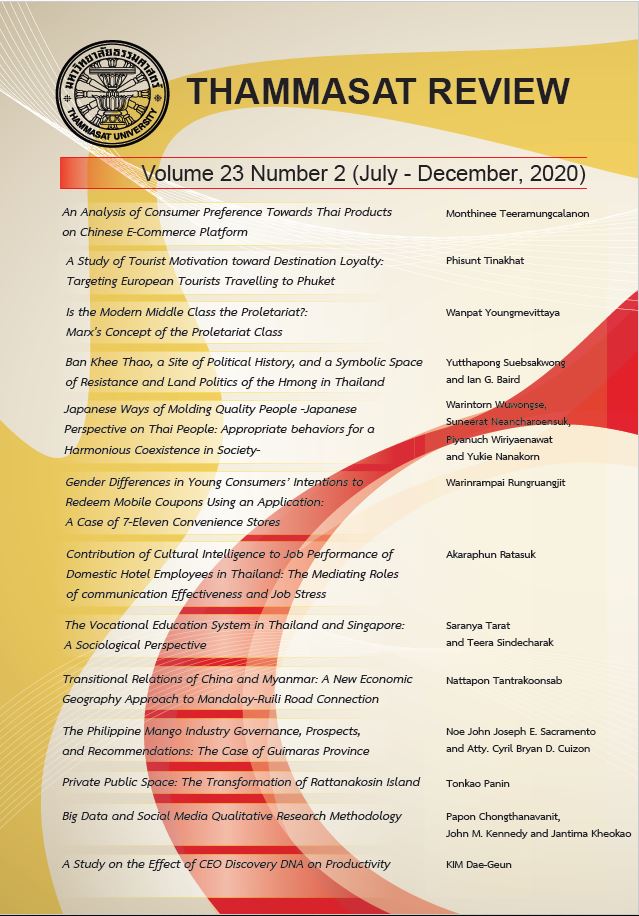Japanese Ways of Molding Quality People -Japanese Perspective on Thai People: Appropriate behaviors for a Harmonious Coexistence in Society
Keywords:
Quality people, Not disturbing people, Strict self-discipline, JapanAbstract
The purpose of this research is to introduce the Japanese way of molding quality people and how it can be applied to Thailand. This is for the development of Thailand’s human resources as well as for its economic development. This study focuses on 3 topics: 1. Japanese perspectives on Thai people, focusing on appropriate behaviors for a harmonious coexistence in society, 2 Japanese based expectations concerning appropriate behavior for a harmonious existence in society through material taught in Moral Education and books on manners, and 3. Role of Japanese schools and families in molding quality people. The research methodology involves an opinion survey using questionnaire, interview and observation of classroom teaching.
The findings reveal that the most important word/phrase indicative of Japanese behavior and conduct is not disturbing others. The way to do so is through self-discipline. This is the essence in the development of Japanese quality people. Besides not disturbing others, Japanese people are taught not to disturb the environment and nature. This way of molding is practiced in the same way across the country and is not confined to certain specific areas. Families, schools and Japanese society all teach this practice, thus making such molding very effective. Teaching in schools is put into practice until it becomes a habit. This is not something learned by heart. Rather, this practice is firmly based on concrete objectives as well as rules and regulations. How to live a harmonious life with others in society is carefully and subtly instilled into people. This same way of conduct is seen across the nation and can be said to represent Japanese culture. The research team would like to end with recommendations on appropriate behaviors that may be useful to incorporate in the Thai education system.
Downloads
Published
How to Cite
Issue
Section
License
The opinions and ideas expressed in all submissions published in Thammasat Review are solely that of the author(s) and do not necessarily reflect that of the editors or the editorial board.
The copyright of all articles including all written content and illustrations belong to Thammasat Review. Any individuals or organisation wishing to publish, reproduce and distribute a particular manuscript must seek permission from the journal first.








